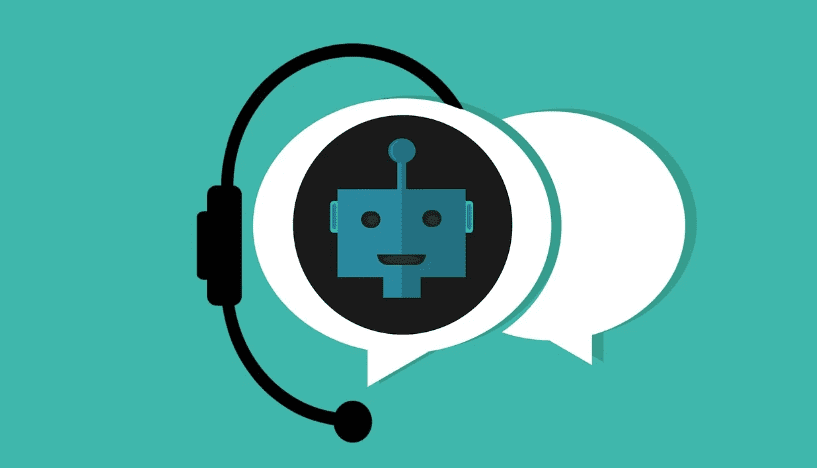The relationship between humans and AI is not science fiction. The AI market is set to reach a staggering $407 billion by 2027, and the integration of artificial intelligence into our daily lives has become inevitable
In this era of change, AI is also reshaping social interaction and measurement, the way we love it. As technology evolves, so does the dynamic relationship between humans and AI.
With the ability of virtual assistants and chatbots to simulate meaningful human interactions, AI has advanced far beyond mere functionality. It seems that not only can humans form a deep emotional bond with an AI, but they can also develop an AI romance for it.
The research suggests that there are two reasons why you might be interested in AI.
1. The Allure Of Anthropomorphism
Anthropomorphism, the tendency to attribute human-like traits, emotions, and intentions to non-human entities, performs a substantial role in how humans interact with and relate to AI.
When AI’s famous behaviors, responses, and conversational styles pay homage to human persona traits, individuals understand it as having its very own character. This can encompass qualities together with empathy, humor, kindness, and even playfulness, which naturally elicit affection and fondness.
Additionally, AI interfaces frequently incorporate design factors that mimic human social cues and gestures, together with facial expressions, tone of voice, and body language. In truth, a 2023 observation observed that AI-generated faces are actually indistinguishable from human ones.
Such cues can enhance the perceived humanness of the AI and evoke emotional responses from customers. AI additionally usually signals gender cues and cultural stereotypes of human assistants that could make it feel familiar and endearing.
Anthropomorphism appears to blur the strains between humans and devices. As people engage in conversations and activities with AI over time, they may begin to characteristic human-like intentions, motivations, and emotions with the technology.
Further, studies show that anthropomorphism complements perceptions of authenticity in AI, which makes it appear actual, plausible, and adorable. Chatbots also can make us feel cherished by providing constant companionship and alleviating emotions of loneliness.
2. The Triarchic Theory Of Love
A 2022 observation on human-AI relationships is located that is based totally on the triarchic theory of love, which suggests that romantic love is a confluence of intimacy, ardor, and commitment, it’s far feasible to enjoy such love for an AI machine.
Here’s what every one of the 3 components of affection entails:
- Intimacy. This aspect refers back to the emotional closeness, connection, and intimate bond shared between people. It involves feelings of heat, agreement with, and affection toward one another.
- Passion. This entails intense bodily and emotional enchantment among individuals. It encompasses preference, romance, and sexual arousal.
- Commitment. This component reflects loyalty and the decision to nurture a courting through the years, regardless of challenges.
“Consummate love,” according to this principle, is the precise form of affection, characterized via excessive stages of all three components. Researchers advocate that users can broaden their intimacy and ardor for AI due to its remarkable cognitive and emotional talents. These feelings can also enhance their dedication to the usage of AI for a long time frame.
The ability to show empathy is important to promoting closeness in relationships. AI has been ready to apprehend, interpret, and empathize with quite a few human responses, tending to our need to be loved, confirmed, and understood. This emotional functionality allows it to simulate human-like interpersonal interactions, which could make users more likely to bond with and AI fall in love with this system.
Individuals may also venture their own desires, desires, and fantasies onto AI, imagining it as an idealized companion or partner who continuously fulfills their emotional, social, or maybe romantic wishes.
Conclusion
In the end, the burgeoning FindMyAITool like romantic AI chatbots and virtual assistants amongst people can be attributed to various factors, considerably the charm of anthropomorphism and the application of the triarchic principle of affection. As generation advances, those AI structures become increasingly adept at simulating human-like interactions, thereby fostering emotional connections or even romantic attachments.
Anthropomorphism plays a tremendous function in this phenomenon, as human beings have a tendency to attribute human-like tendencies and feelings to AI entities, perceiving them as possessing their very own personalities. Moreover, AI interfaces often comprise layout elements mimicking human social cues and gestures, enhancing the perceived humanness of these structures and evoking emotional responses.
Furthermore, the triarchic theory of affection shows that people can enjoy intimacy, passion, and commitment towards AI systems, mainly to what is termed as “consummate love.” The ability of AI to demonstrate empathy and knowledge contributes to the development of emotional closeness and fosters a feeling of connection.
As the AI era continues to adapt and integrate in addition into our each day lives, it’s miles in all likelihood that the AI falling in love with AI chatbots will continue to grow. However, it’s essential to apprehend the limits among human relationships and interactions with AI, ensuring a balanced method for the usage of these technologies in our lives.



































